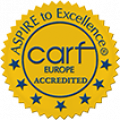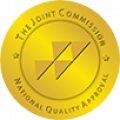Addiction Treatment Near Me at BlueCrest Recovery Center
Finding Recovery Near Me?
Addiction recovery can be a complicated process, but it can also be a fairly streamlined one. If you’re interested in setting foot on the path towards recovery then you might want to make things easier for yourself by attending one of BlueCrest’s programs. Here, programs generally follow a similar process – although the individual treatments and sessions will be tailored specifically for the patient.
Here are a few examples of things that you can expect to participate in or experience during your recovery.
Therapy and counseling are the backbones of nearly every addiction recovery program. These treatments allow you to understand the mechanisms behind your addiction. By identifying the underlying causes, you’ll be able to recognize your addictive behaviors and begin to replace them with something more positive.
For example, addiction may be the result of a long-buried trauma. Even if you’re not aware of it, this trauma could be creating a negative emotional response to seemingly ordinary situations on a daily basis. These responses can be difficult to handle and may lead someone down the road to addiction.
Therapy and counseling can help you unearth these difficult emotions, experiences, and memories. This might sound unpleasant, but doing this is the only way that you can stop them from controlling you.
The 12-Step Program is the cornerstone for the vast majority of addiction recovery programs across the world. The 12 Steps were pioneered by two recovering alcoholics in the early half of the 20th century when the damage wrought by alcoholism was obvious and yet drinkers had nowhere to turn if they wanted to stop drinking.
The 12 Steps will provide you with a framework and some tangible goals for helping you progress through your recovery. The 12 Steps are a continual process and one that you can continue to employ throughout life.
Not all recovery programs offer meditation and yoga, but at BlueCrest we value the importance of holistic treatment. Meditation and yoga are fantastic tools for helping to align the mind and body.
With regular practice, people who engage in either meditation or yoga can learn to recognize their emotions — including feelings like cravings and triggers. Meditation helps to separate you from the knee-jerk reaction to these feelings that can lead you toward relapse. Yoga helps you understand the relationship between your mind and body, thus preventing you from getting entirely overwhelmed by either physical or mental stimulation.
Group therapy and group meetings are a great way for recovering individuals to regain some of their confidence. Group meetings may be led by a counselor or therapist o they may be guided gently while the patients direct most of the conversation.
In either case, group sessions and meetings allow for people to share their stories, advice, and experiences overcoming addiction. This allows people to gain a level of insight that they might not be able to receive from a therapist who has never used drugs themselves.
Types of Treatment Programs
Outpatient Near Me
BlueCrest’s outpatient recovery program is the most forgiving of the available options. Program members are expected to attend meetings once or twice per week, usually during the evening or afternoon.
Prior to being accepted into the outpatient program, patients must first prove that they have support from friends, family, and/or other people who are partaking in the 12-step program.
Some people use BlueCrest’s outpatient program as a supplemental course rather than a primary recovery program. A lot of members have already completed a more intensive program and see this as an opportunity to remain focused on their recovery.
Intensive Outpatient Near Me
BlueCrest’s intensive outpatient program requires more of a time commitment from patients and delivers more results. Rather than meeting once or twice a week, intensive outpatient will have you meeting three to five times weekly.
While most attendees of the intensive outpatient program will remain at their own homes, it may be encouraged that they move into a sober living home or similar facility. These facilities allow recovering users to stay focused on sobriety while they continue to attend the meetings and counseling sessions offered by the program.
Partial Care Program Near Me
The partial care program is BlueCrest’s most intensive program. While it’s not as intensive as a full inpatient program, clients will still have to attend meetings every day of the week for six hours.
This allows for complete immersion in their recovery. They will be given regular therapy sessions and meet with counselors to ensure that their recovery progresses in a healthy and structured manner.
Our Approach
We aim to provide you with a complete recovery. That means that we address all factors of your addiction and deal with them accordingly. Our philosophy encompasses clinical, spiritual, and holistic treatments.
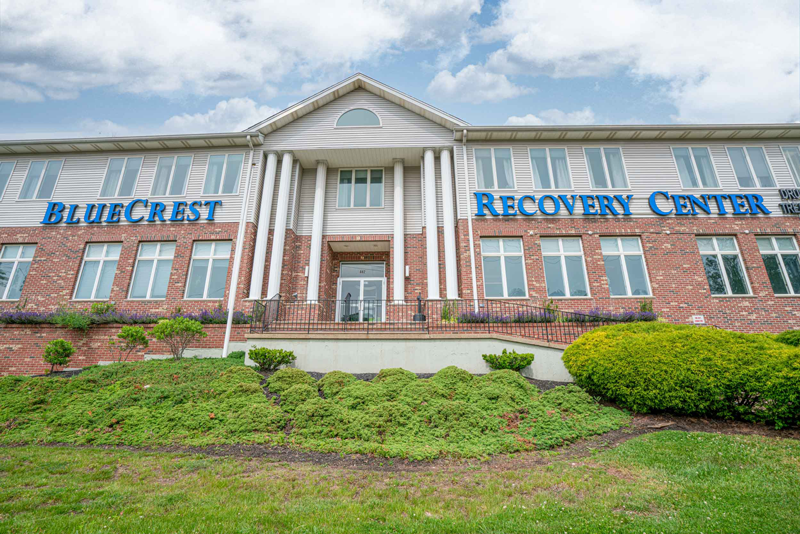
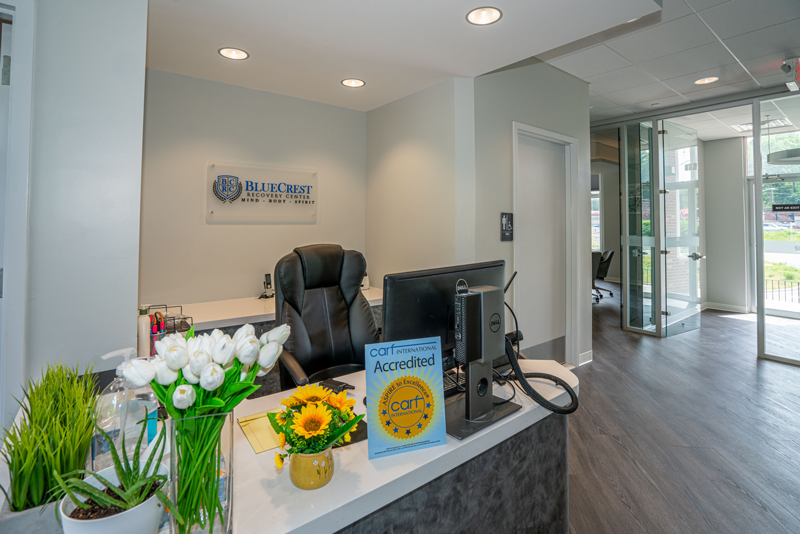
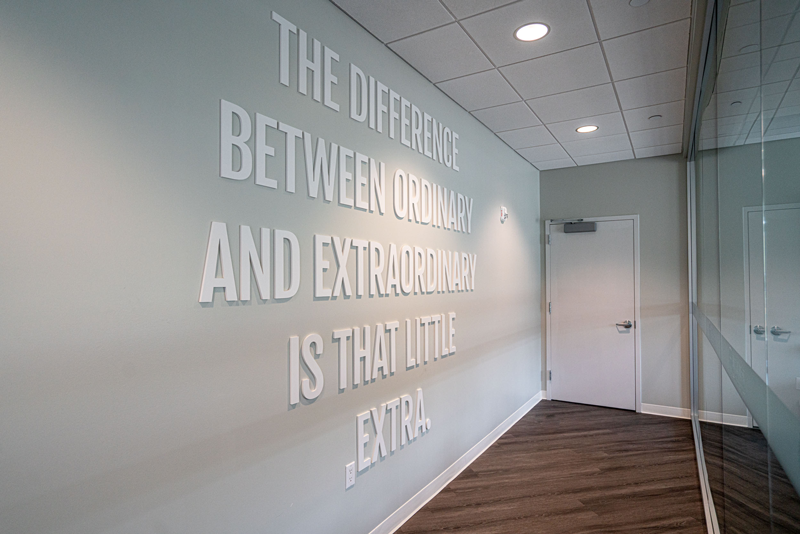
About BlueCrest
Located minutes outside of New York City, BlueCrest Recovery Center is committed to improving the lives of our clients and their families. From initial contact to discharge, dedicated and talented staff members ensure every component of care meets rigorous standards. Our skilled clinicians strive to empower each individual with our unique treatment approach that integrates evidence-based practice with 12-Step principles.
Types of Addiction Treated Near Me
At BlueCrest, we are familiar with treating addictions of all different types. Regardless of what sort of addiction you’re facing you should consider coming to us for treatment. Here are a few examples of different addictive substances that we have treated.
- Benzodiazepines, like Xanax and Valium
- Cocaine
- Opioids, including heroin and fentanyl, as well as doctor-prescribed painkillers
- Methamphetamine and amphetamines
- Prescription drugs
- Suboxone, methadone, and other opioid ‘maintenance’ drugs
- Synthetic research chemicals
- Alcohol
Final Thoughts
If you’re thinking about seeking help for your addiction then look no further than BlueCrest Recovery. We’ve successfully helped numerous clients overcome their addictions thanks to the integration of holistic treatments and practices
Speak to an addiction specialist now
No commitment or obligation. All calls are kept 100% confidential.
